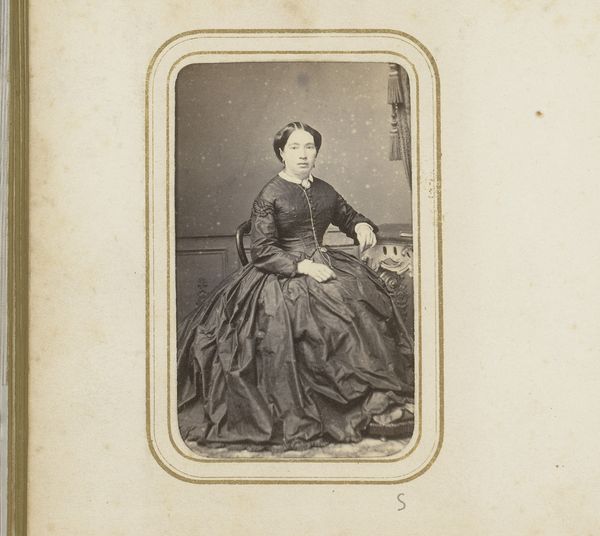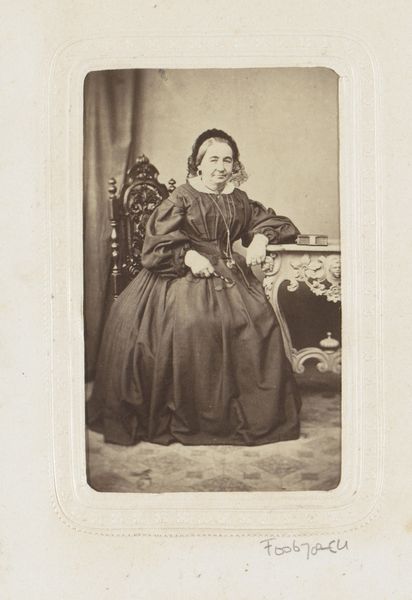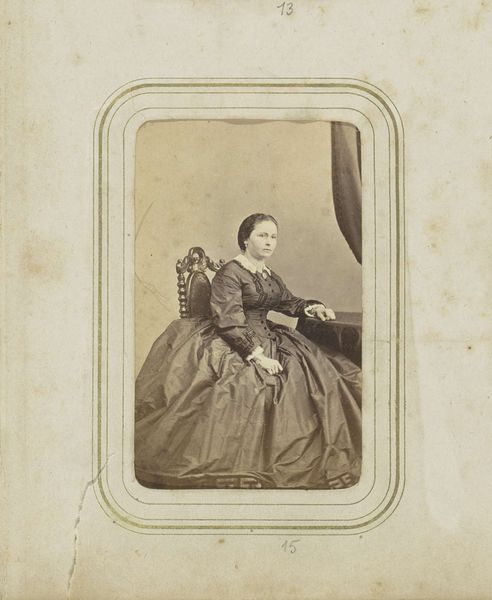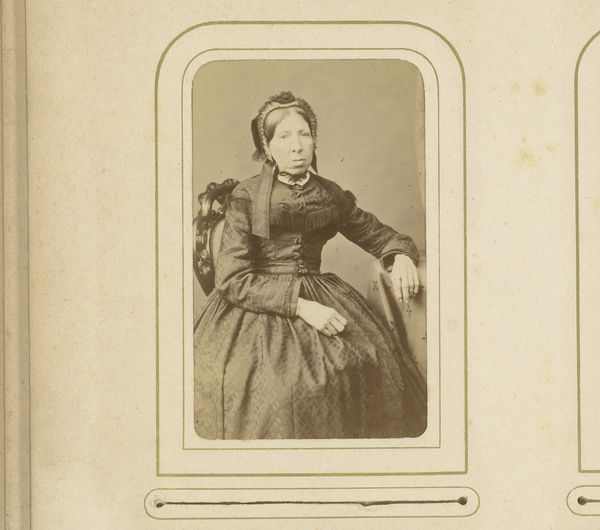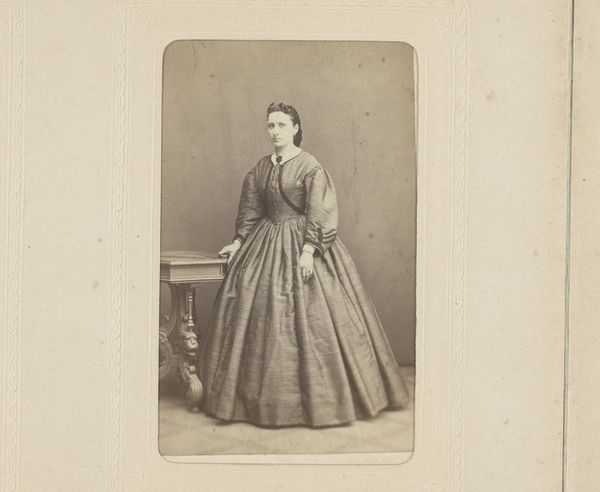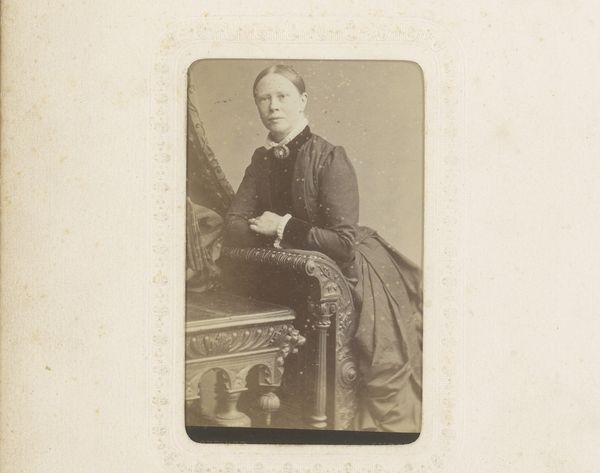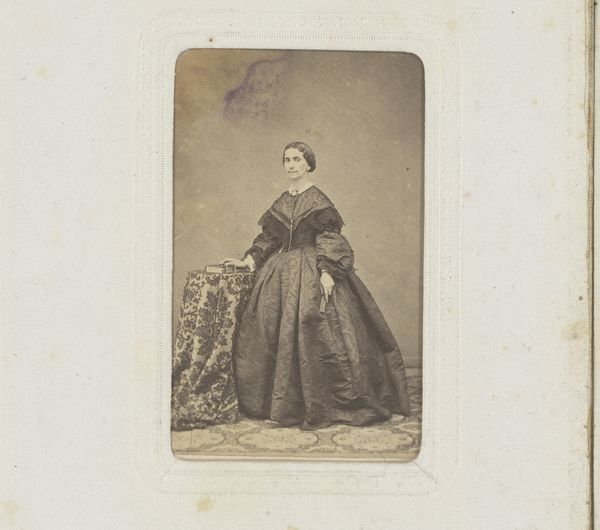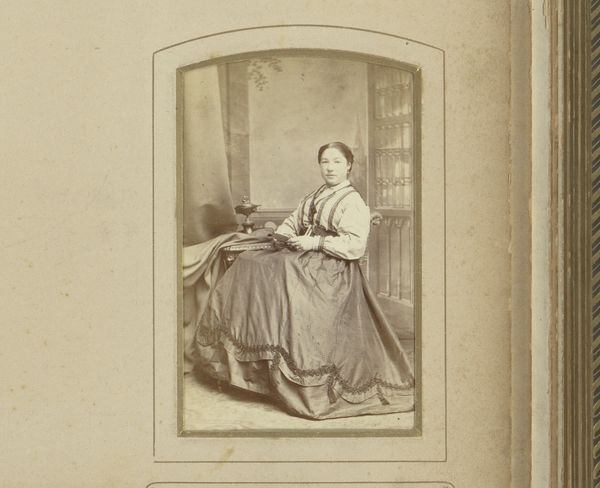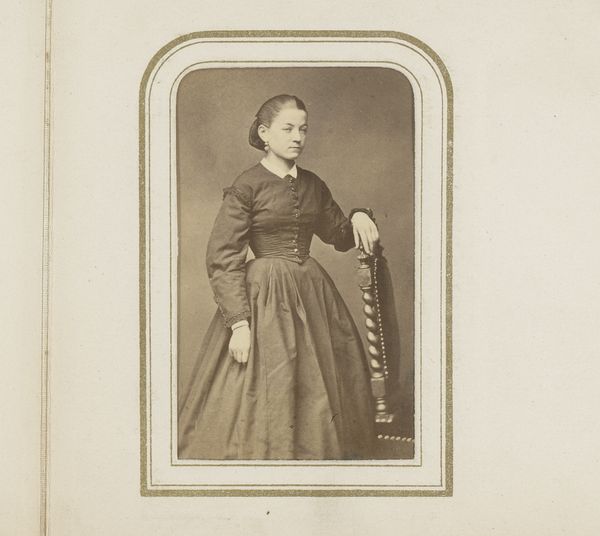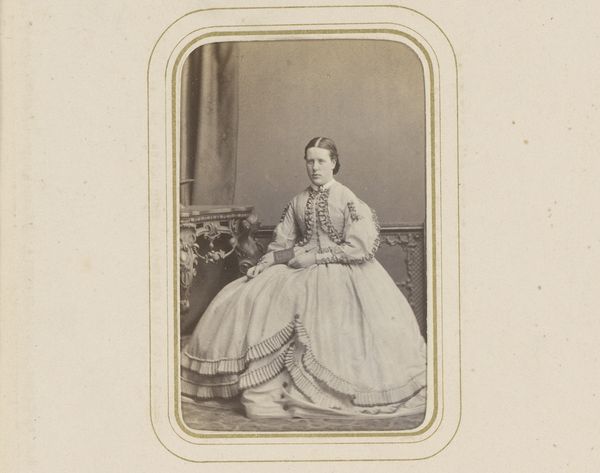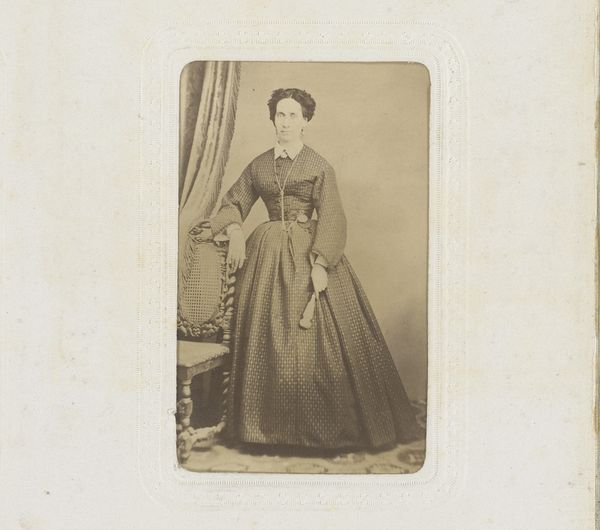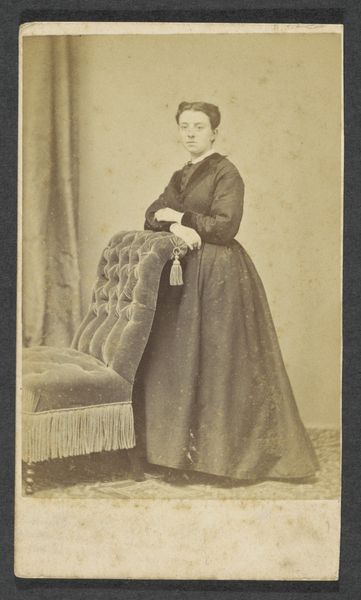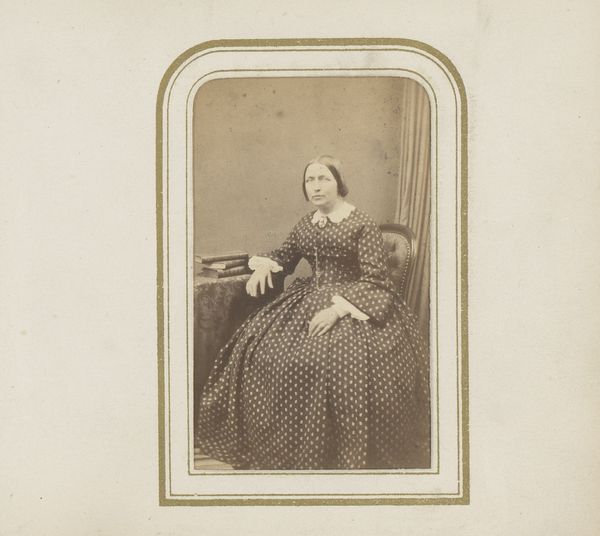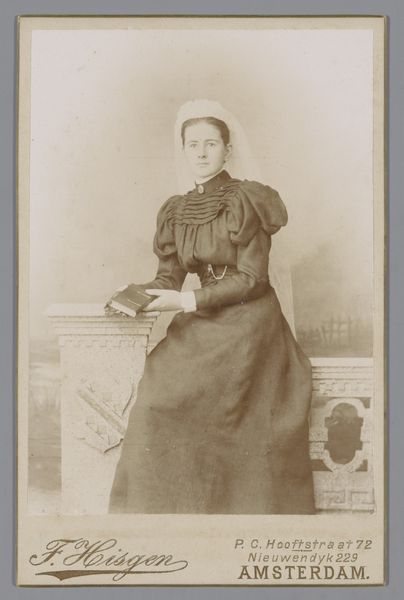
photography, gelatin-silver-print
#
portrait
#
16_19th-century
#
photography
#
gelatin-silver-print
#
19th century
#
watercolor
#
realism
Dimensions: height 83 mm, width 51 mm
Copyright: Rijks Museum: Open Domain
Editor: This is "Portrait of a Seated Woman," taken between 1861 and 1866 by Louis Robert Werner, and it's a gelatin silver print. The way her dark dress contrasts with the pale background is quite striking. What strikes you about it? Curator: I am particularly interested in the choice of gelatin silver as a medium. Its relatively recent adoption reflects industrial advancements impacting artistic practice. What socioeconomic conditions enabled Werner to procure these materials? Also, consider the labor involved: the preparation of the gelatin emulsion, the exposure, the developing process. Editor: That's a good point! It’s easy to forget how much work went into just producing the photograph itself. So, are you saying that even the *type* of photography says something about labor and society? Curator: Precisely! The standardization of photographic materials meant portraiture became more accessible to a broader segment of the population. Previously a domain of the elite, the material reality of photography democratized image-making to some extent. What were the economic opportunities afforded by these processes? Were new markets developed or old labor displaced by industrial techniques of production? Editor: That’s really insightful. I hadn’t considered photography in terms of accessibility and economics. So, thinking about it as a material product rooted in specific historical conditions makes you question the sitter, her access to these processes? Curator: Exactly. Looking at the subject through this lens helps consider new angles. Editor: I guess I usually look at portraits as just depictions of people, but it's more than that. Curator: Always more. Analyzing photography through the material processes that underpin its creation reveals much more about the society that birthed it.
Comments
No comments
Be the first to comment and join the conversation on the ultimate creative platform.
